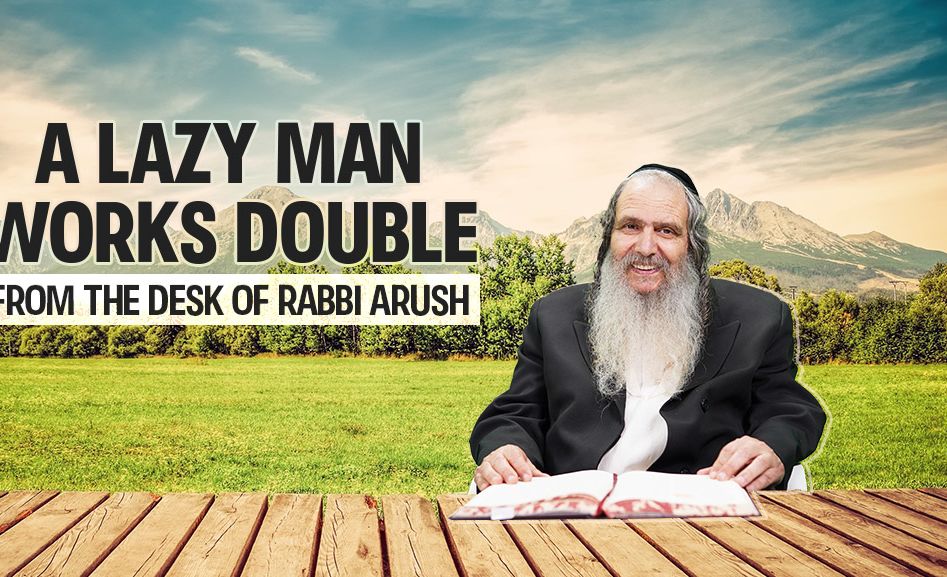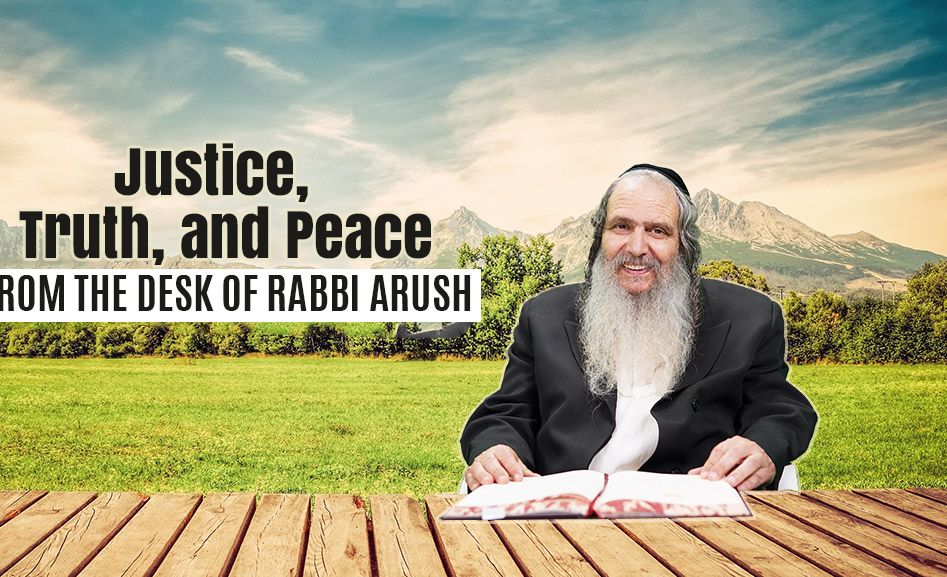
The “I” Syndrome-Spiritual Weapons, Part 9
I was davening, I was giving tzedakah, I was doing mitzvot – I, I, I. It was all about me. As if I was someone, as if I had power, as if I could effect change…

Continued from Take It On! Mitzvot – Spiritual Weapons, Part 8
As I explained in previous articles, I successfully used these spiritual “weapons” to navigate through a tremendously difficult and trying year of my life. However, there was one crucial piece that was missing, and I didn’t discover it until the very end.
Just one month ago, the civil divorce was still not done. I had been flexing my spiritual emuna muscles for eleven painful months, but this one piece just didn’t seem to want to go. I felt completely and utterly spent, and yet, the situation continued. I couldn’t understand what I was doing wrong – after all, these tools were so powerful. Why didn’t they seem to be working?
Because I was doing them. Read that as in I in big caps. I was davening, I was giving tzedakah, I was doing mitzvot – I, I, I. It was all about me. As if I was someone, as if I had power, as if I could effect change. I was still in hishtadlut mode – me doing my efforts in this world, albeit using spiritual means instead of physical means.
I finally understood that in the end, the fact that spiritual means do anything is just a chesed of Hashem. Who says that He has to listen to our prayers? Who says they should mean anything? Who says that tzedakah should save a person? It is only because Hashem in His mercy says so! The important word being: mercy.
Truly, everything in this world happens solely by the mercy of Hashem. He doesn’t owe us anything, and we don’t deserve anything. Even the greatest tzaddik deserves nothing because truly, what can we give Hashem that we should deserve something in return? From where does he justify his existence? Even our merit is a chesed!!! And if this is true about a tzaddik, all the more so how it applies to an average person like me!
I realized that just like I had no power to force the civil divorce to happen at any particular time in this world, I had no power to force Hashem to do it in the spiritual world. Not even with mitzvot. Somewhere, deep down, I had trusted in the power of my mitzvot and that was incorrect. Now, I had to do the most difficult thing in the world – relinquish control.
I didn’t think I could do it, I didn’t think I could manage without being in control, and somehow with Hashem’s help, I did. Not that I stopped using the tools I previously outlined – I most certainly continued to apply them. But I did so in a completely different manner. I threw up my hands and said “Hashem, I’m going to keep doing mine, but I know it doesn’t matter! You don’t need my hishtadlut You do yours however and whenever it is good in your mercy, whatever I am doing or not doing.”
The reality is that Hashem needs absolutely nothing from us. He asks it of us because really, it is the best thing for us. Now, we can’t do mitzvot because it’s the best for us, because that would be selfish – and selfishness is not a holy trait we want to cultivate. But that doesn’t mean that Hashem actually needs them per say (just the opposite, Hashem needs nothing!), or that He has to consider them in His cheshbonot (calculations) of what is and is not good for us. In the end, our entire existence boils down to that one word: mercy.
So I started praying only that Hashem should have mercy. I recognized that if He did indeed answer my prayers and finish the divorce, it would not be because of any of the spiritual tools I used, but only because He decided that He would have mercy on me. I begged like a poor person for a free gift and wiped away that last little tiny residue left in my head that somehow I could make things happen the way I wanted. I completely and utterly let go.
And Hashem answered me. The civil divorce is done now, Baruch Hashem, and I continue to use all the lessons I learned through this past year to guide me into this next, hopefully happier and easier phase in my life. There are still some open issues on the table and I don’t have total clarity on where to go now, but I know that Hashem in His infinite mercy will, im yirtzei Hashem (if Hashem wills), show me the path to take from here.
Continue with Relinquish Control – Spiritual Weapons, Part 10.









4/20/2021
Excellent question. The entire point is that although doing mitzvot etc are not supposed to be bribing Hashem whatsoever – the REALITY is that oftentimes without realizing it, we do indeed feel that way.
How many times have we asked or heard the question: "I prayed so much, why haven't I been answered?" This question comes because we feel that we should be answered! I mean, I prayed, I gave tzedakah, whatever we did – I did mine, right? Where is the response from Hashem?
And the point of the article is – WRONG! It doesn't work that way. We have to do mitzvot, and Hashem gives us what we need, and there is no direct link between them. We cannot bribe Hashem with anything, because anything we managed to do was already a gift from Hashem.
And THEREFORE we must let go of this feeling of "where is the result I wanted?" We must stop thinking "I did X, I did Y, I did Z – I I I – and why have I not gotten the Y result I want yet?…"
Rabbi Arush explains the end of that sentence, which we never let ourselves actually think but it truly is the end of the sentence: "…Nu, G-d, do teshuva already and give me what I want!" Because even if we know we aren't supposed to think like that, a lot of the time, we do.
Of course it is we who must do teshuva for being so arrogant, and not Hashem who is already doing the best for us, and we just don't have the ability to see it.
That's the point – to get out of thinking "But I did…" and get into the emuna of thinking "…but Hashem is doing the very best!"
Rabbi Arush explains this concept in a number of places, but specifically in "The Wonders of Thank You" (Niflaot HaTodah) which is currently in Hebrew and still in the process of being translated into English.
4/19/2021
okay. but don't we say multiple times throughout the Yomim Noraim that Tshuvah, Tzedakah, Tfillah will stop the harsh decrees? So therefore our actions, especially in these 3 areas do make a difference. No? We have to do our hishtadlus, correct? Or can we just sit back, have emunah and bitachon, and leave it all up to Hashem? You are stating that you realized that Hashem doesn't need any of our mitzvos. Just have faith in Him and Gd willing, He will take care of things the way you want it to work out. If He deems it okay. Regardless if we do anything on our end. So why do anything on our end? Just believe in Hashem, trust Him, and pray that He will do things the way you want them to work out. Why do mitzvos to try and "bribe" Him so to say (chas vShalom, chas vChalilah). Is that what hishtadlus / Mitzvos is? Bribing? Do you care to elaborate on this? Please reply to me. Thank you.